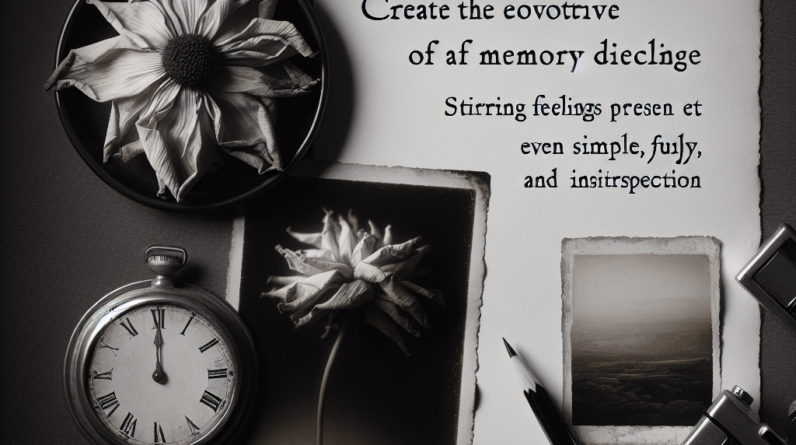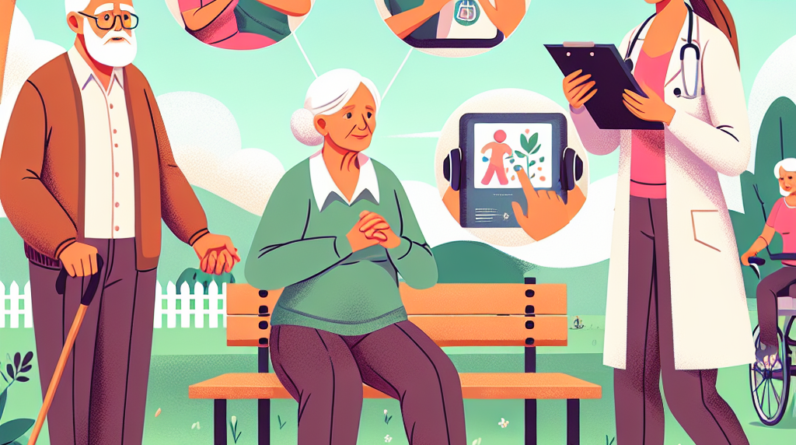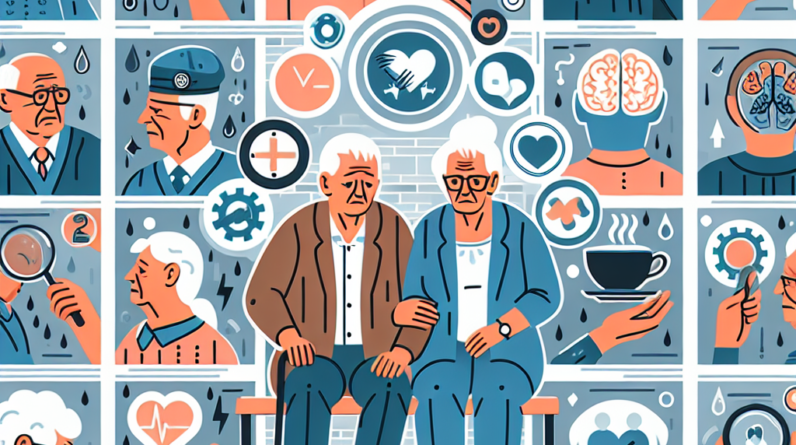
As you embark on the journey of aging, it’s essential to prioritize your mental well-being. In this article, we explore the challenges that can arise with mental health in old age and uncover effective strategies to maintain your cognitive and emotional vitality. Discover how you can actively nurture your mental well-being, ensuring a fulfilling and joyful life as you gracefully embrace the golden years.
Physical Health and Exercise

This image is property of pixabay.com.
The Importance of Physical Health in Maintaining Mental Well-being
Physical health plays a crucial role in maintaining mental well-being, especially as we age. Engaging in regular exercise has been shown to have a multitude of benefits for our mental health. Exercise not only helps improve our physical strength and mobility but also has a significant impact on our mood and overall mental well-being.
As you age, your body goes through certain changes such as a decrease in muscle mass and bone density. Regular exercise, particularly strength training and weight-bearing exercises, can help counteract these changes and improve your physical health. By incorporating exercise into your routine, you can enhance your cardiovascular fitness, increase flexibility, and maintain a healthy weight.
Exercise also releases endorphins, also known as the “feel-good” hormones, which can boost your mood and reduce symptoms of anxiety and depression. The positive effects of exercise on mental health are not only short-term but can also have long-term benefits for cognitive function and reducing the risk of developing age-related cognitive decline, such as dementia.
Types of Exercise for Older Adults
When it comes to exercise for older adults, it’s essential to choose activities that are suitable for your physical abilities and preferences. Here are some types of exercises that are particularly beneficial for older adults:
-
Aerobic Exercises: Walking, cycling, swimming, or dancing are great options for improving cardiovascular health and promoting overall well-being. Aim for at least 150 minutes of moderate-intensity aerobic activity per week, or 75 minutes of vigorous-intensity exercise.
-
Strength Training: Strength training exercises, such as lifting weights or using resistance bands, are vital for maintaining muscle mass, bone density, and strength. Aim for two or more days of strength training exercises per week.
-
Flexibility and Balance Exercises: Activities like yoga, tai chi, and stretching exercises can improve flexibility, balance, and coordination, reducing the risk of falls and injuries. Incorporate these exercises into your routine at least two times per week.

This image is property of pixabay.com.
Tips for Incorporating Physical Activity into Daily Routine
Finding ways to incorporate physical activity into your daily routine doesn’t have to be complicated. Here are some tips to help you stay active:
-
Start Slow: If you haven’t been physically active for a while, start with low-impact exercises and gradually increase the intensity and duration. Always listen to your body and don’t push yourself beyond your limits.
-
Set Realistic Goals: Set achievable goals for yourself, such as taking a daily 30-minute walk or attending a fitness class twice a week. Having specific goals can help you stay motivated and track your progress.
-
Make it Enjoyable: Choose activities that you genuinely enjoy doing. Whether it’s dancing, gardening, or playing a sport, finding exercise that you look forward to will make it easier to stick to a routine.
-
Stay Active Throughout the Day: Take advantage of opportunities to incorporate physical activity into your daily routine. Use the stairs instead of the elevator, take short walks during your breaks, or perform simple exercises while watching TV.
-
Find a Workout Buddy: Exercising with a friend or joining a fitness group can make the experience more enjoyable and provide additional motivation and support.

This image is property of pixabay.com.
Benefits of Regular Exercise for Mental Health
Engaging in regular exercise offers numerous benefits for mental health, especially in older adults. Here are some key benefits of regular exercise:
-
Stress Reduction: Exercise can help reduce stress levels by releasing endorphins, which act as natural stress and pain relievers. It provides a healthy outlet for managing and coping with daily stressors.
-
Improved Mood: Physical activity stimulates the production of serotonin, dopamine, and norepinephrine, which are neurotransmitters responsible for mood regulation. Regular exercise can help alleviate symptoms of depression and anxiety.
-
Enhanced Cognitive Function: Exercise increases blood flow to the brain, improving cognitive function and memory. It also promotes the growth and maintenance of brain cells, reducing the risk of age-related cognitive decline.
-
Increased Self-esteem: Regular exercise contributes to a positive body image and improved self-esteem. Achieving fitness goals and feeling physically strong and capable boosts self-confidence and self-worth.
-
Better Sleep: Physical activity can improve sleep quality and help regulate sleep patterns. By reducing anxiety and promoting overall relaxation, exercise prepares the body for more restful sleep.
Incorporating regular physical activity into your daily routine can have a profound impact on your mental well-being as you age. It not only improves physical health but also enhances mood, cognitive function, and overall quality of life.








